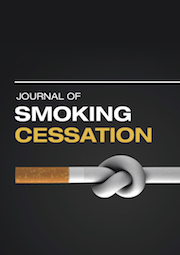Article contents
Efficacy of an SMS-Based Smoking Intervention Using Message Self-Authorship: A Pilot Study
Published online by Cambridge University Press: 29 December 2016
Abstract
Introduction: Text-message-based interventions hold great potential for intervention and are increasingly feasible, given advances in information technology.
Aims: This pilot randomized controlled trial (RCT) aims to compare the efficacy of self-versus expert-authored content delivered via text-messaging for smoking cessation.
Methods: Sixty-two participants aged 25–66 attended laboratory sessions pre- and post-30 days of text-messaging intervention. Participants were randomised to one of two experimental conditions – self-authorship (SA) only and SA with implementation intentions (SA+ii) – or active control. Participants composed 30–60 brief motivational cessation messages for use during their cessation attempt. SA+ii participants were further instructed to anticipate obstacles and form simple if-then plans to overcome them. Experimental groups received their self-authored texts during the intervention phase, whereas control participants received expert-authored messages.
Results: Overall, smoking decreased as measured by change in exhaled carbon monoxide (CO), F(1,59) = 4.43, p = 0.04. The SA+ii group showed slightly greater CO reduction (M = 3.63, SD = 5.39) than control (M = 0.03, SD = 5.80; t(40) = 2.08, p = 0.04). SA alone (M = 1.97, SD = 9.30) was not more effective than control.
Conclusions: SA does not appear to increase efficacy. However, this pilot supports prior research, indicating that text-based interventions can increase smoking cessation success and may decrease psychological symptoms of withdrawal. Much research is needed to identify ways to bolster intervention efficacy.
- Type
- Protocol
- Information
- Copyright
- Copyright © The Author(s) 2016
References
- 4
- Cited by


